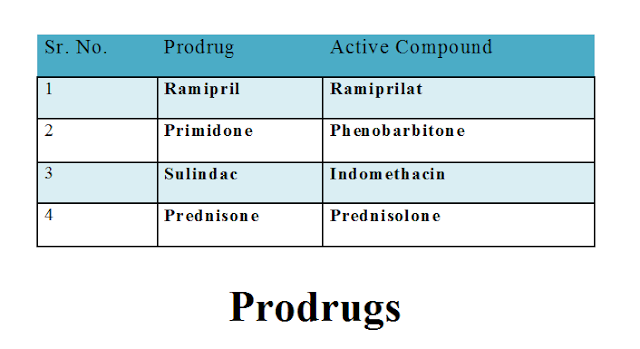What is metabolism (Bio-transformation) of drugs?
- A Body has the tendency to break down and excrete any foreign particle entering into the body, like drugs even food too.
- The biochemical conversion of active drug into less active or inactive form which is easy for excretion through the body is called as metabolism or biotransformation.
- As metabolism of drugs takes place in biological system it is also called as Bio-transformation
Sites of Drug Metabolism:
- Many organs plays role in metabolism, some of important of them are as follows,
- Liver: A major site for drug metabolism, contains enzyme machinery for drug metabolism e.g. cytochrome P450.
- Intestinal mucosa.
- Kidneys.
- Lungs.'
- skin, etc.
Types of Drug Metabolism:
- Drug metabolism in body follows either of following two pathways
- Phase-I Reactions ( Functionalization, Nonsynthetic reactions)
- Phase-II Reactions. ( synthetic reactions, conjugation)
A) Phase-I Reactions:
- They are also called as Functionalization reactions or Nonsynthetic reactions.
- These reactions involve transfer for polar groups to drug molecule by simple chemical reactions like oxidation, reduction, hydrolysis etc. in order to make it more polar (more water soluble) to make it easy for excretion.
- Microsomal enzymes take part in reactions, major enzyme group is Cytochrome P450.
B) Phase-II Reactions:
- They are also called as Conjugation reactions or synthetic reactions.
- In these reactions, the drug molecule is combined with compounds like glucuronic acid, glycine etc. to form a conjugate which is polar in nature i.e. more water soluble and hence easy for excretion.
- Usually, the final product of these reactions has a high molecular weight.
- e.g. Morphine.
Outcomes of Drug Metabolism:
- Although the main aim of drug metabolism is to make an inactive compound, ready for excretion but many times the result of biotransformation may vary as follows,
Important terminologies related to Bio-transformation:
First pass Effect:
- It is also called as "Pre-systemic Metabolism".
- As the name itself indicates this metabolism takes place before the drug enters the systemic circulation in, intestinal mucosa and liver.
- After following the oral route, the drugs absorbed gets transported to the liver through portal circulation, liver being a major site for drug metabolism, a major part of the dose administered gets metabolized in the liver before entering into systemic circulation.
- e.g Morphine, Glyceryl trinitrate, etc.
2. Enterohepatic Circulation:
- Certain highly lipid soluble drugs after absorption enter liver and are again excreted in small intestine through the bile duct for certain period the cycle is called as enterohepatic circulation.
- e.g. Phenobarbitone.
3. Prodrugs:
- These are inactive drugs which on biotransformation gets converted into the active pharmacological drugs.
- They are trending as they overcome major side effects associated with the drugs.



